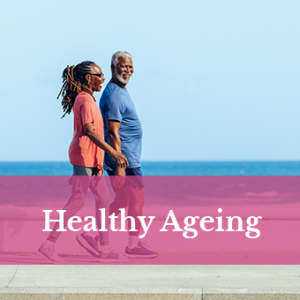
Older women’s well-being during the COVID-19 pandemic: individual, community, and contextual factors
Presenter(s):
Andrew Banda; Jaco Hoffman; Vera Roos, Univerity of Zambia, Zambia
Abstract
Background: COVID-19 has emerged as one of the most significant social, economic, and public health challenges of the 21st century since World War II, affecting everyone globally but not equally. Since December 2019, the SARS-CoV-2 virus has traversed every corner of the world, changing how people live, interact, socialise, work, and seek or receive services.
Objective: We examined the influence of individual and community-contextual factors on the well-being of older women in Zambia during the COVID-19 pandemic, drawing on Bronfenbrenner’s process-person-context-time model.
Methods: Secondary data from the nationally representative 2021 SEIA were used, and bivariate and logistic regression analyses were performed to determine factors associated with the well-being of older women during the COVID-19 pandemic.
Results: Overall, 29% (613) of older women reported a decline in their well-being due to COVID-19. Older women in rural areas had lower odds of well-being [Adjusted Odds Ratio (AOR) 0.607, 95% 0455,0.809]. At the individual level, the well-being of older women during COVID-19 was associated with age (AOR O.362, 95% CI: 0.190,0.689) and being in paid work (AOR 0.737, 95% CI: 0.552,0.984). Despite education having a strong relationship with well-being, it had a weak effect on the well-being of older women during COVID-19. Community-level factors significantly associated with the well-being of older women amidst COVID-19 included attendance at public gatherings (e.g., church meetings, funerals) (AOR 1.465, 95% CI: 1.139,1.885) and perceived fear or anxiety due to COVID-19 (AOR 0.522, 95% CI: 0.392,0.696). A significant contextual-level factor was access to transport services during the pandemic (AOR 0.589, 95% CI: 0.390,0.890).
Conclusion: COVID-19 has exposed the inadequacy of systems at different levels in meeting the needs of older women and promoting their well-being during emergencies. At the individual level, there is a need to support older women’s livelihoods and educational opportunities. Despite limitations on social interactions during COVID-19, access to social gatherings and interactions supported older women’s well-being. However, this was hampered by fear of contracting COVID-19 and the limitations in public transport that compromised their mobility to access services and visit people. A more extensive analysis of individual, community, and contextual factors should identify factors that support or compromise the well-being of older women during emergencies or shocks. There is a need for information about what livelihood strategies during and/or post shocks, or critical events such as COVID-19 could sustainably support older women’s well-being.
Bio(s):
Andrew Banda, a demographer, Monitoring and Evaluation specialist, and Social Gerontologist, stands at the forefront as an emerging researcher on rural and adaptive ageing. He is the first graduate of the groundbreaking PhD programme on Ageing and Development from the Optentia research unit at North-West University. Andrew brings the Sub-Saharan African (SSA) context to understanding the complex intersection of ageing, well-being, and rural communities. His research focuses on identifying strategies to support and enhance the well-being of older persons in dynamic rural communities of SSA, taking into account demographic trends and social development indicators.
He currently serves as a member of the International Federation on Ageing (IFA) expert advisors for the IFA Optentia, North-West University, 17th Global Conference- YEBO/YES! Action on Ageing: Evidence | Policy | Practice as an eminent expert. Dr. Banda serves as a Lecturer and Researcher at the University of Zambia, he is also a member of several technical committees.
